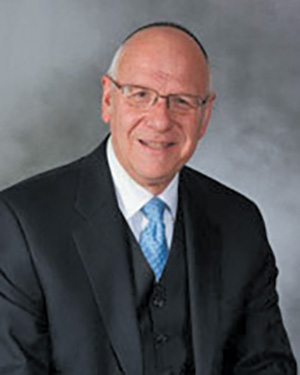
Today’s haftarah reading does not focus upon the first parsha, Behar, which discusses the laws of Shemita, Yovel and land ownership in Israel. Instead, the reading reflects the harsh words of the tochacha, the admonition that we read in the second parsha, as the navi rails against the wayward people who had turned to other gods. Eschewing words of comfort, Yirmiyahu instead compares the fate of those who trust in God to the fate of those who have forsaken Him. One he likens to a lush tree planted by a brook whose roots spread, whose foliage and fruit are lush and who could, therefore, survive even a drought. The other, he equates with a lone tree planted in a desert dwelling, in a parched wilderness where, he explains, he grows few roots and little fruit, and therefore could not survive the difficult years of drought.
The prophecy, when seen in light of the Torah’s tochacha, is certainly a logical choice for the haftarah. Like the parsha, our haftarah predicts the punishment of exile for the sins of Israel. Likewise, the warning that Israel will serve her enemies and the unique usage of the term “v’shamat’ta” to mean “withdraw from the land” brings us back to the Torah’s condemnation of Israel for not observing the “Shemita,” the sabbatical year, as Rashi points out.
And there is yet another connection that makes this selection a fitting one for this parsha.
The haftarah ends on a strange note. Yirmiyahu seems to have ended his words to the nation and then, uncharacteristically, turns to Hashem to speak of his own condition. “Refa’eini Hashem v’eirafei,” he cries, “Heal me, Hashem, and I will be healed.” Beyond trying to understand what the words themselves denote, we are puzzled regarding the prophet’s plea and why it was even included in the haftarah. Various commentaries suggest reasons for this phrase. Some believe that Yirmiyahu was referring to the “wounds” he received from the hateful words and curses he heard from the sinful nation. Others believe that the prophet was referring to the real physical pain he may have suffered from the blows and harsh treatment he received from the nobles and officers, while still others feel that Yirmiyahu was praying for the nation itself, hoping that God would cure their “illness,” that of lack of faith in God.
I would suggest that the prophet’s words actually fit in well with the basic theme of his prophecy: the people’s lack of emunah. Previously, he admonished those who relied upon false gods, those who trusted in wealth or those who were confident in their own power. Here, he ends these thoughts with the words “Refa’eini…” expressing the idea that only if God heals me am I truly cured and only if Hashem saves me will I have true salvation! Trust in anything else is false and useless. This is precisely what the Torah expresses as well, since the failure to observe Shemita was due to the nation’s lack of faith in God’s promise that there would be enough for them during these sabbatical years.
Yirmiyahu’s words of faith were a powerful message to the ancients, and they remain just as relevant for us today.
By Rabbi Neil N. Winkler
Parshiyot Behar-Bechukotai
Rabbi Neil Winkler is the Rabbi Emeritus of the Young Israel of Fort Lee and now lives in Israel.










